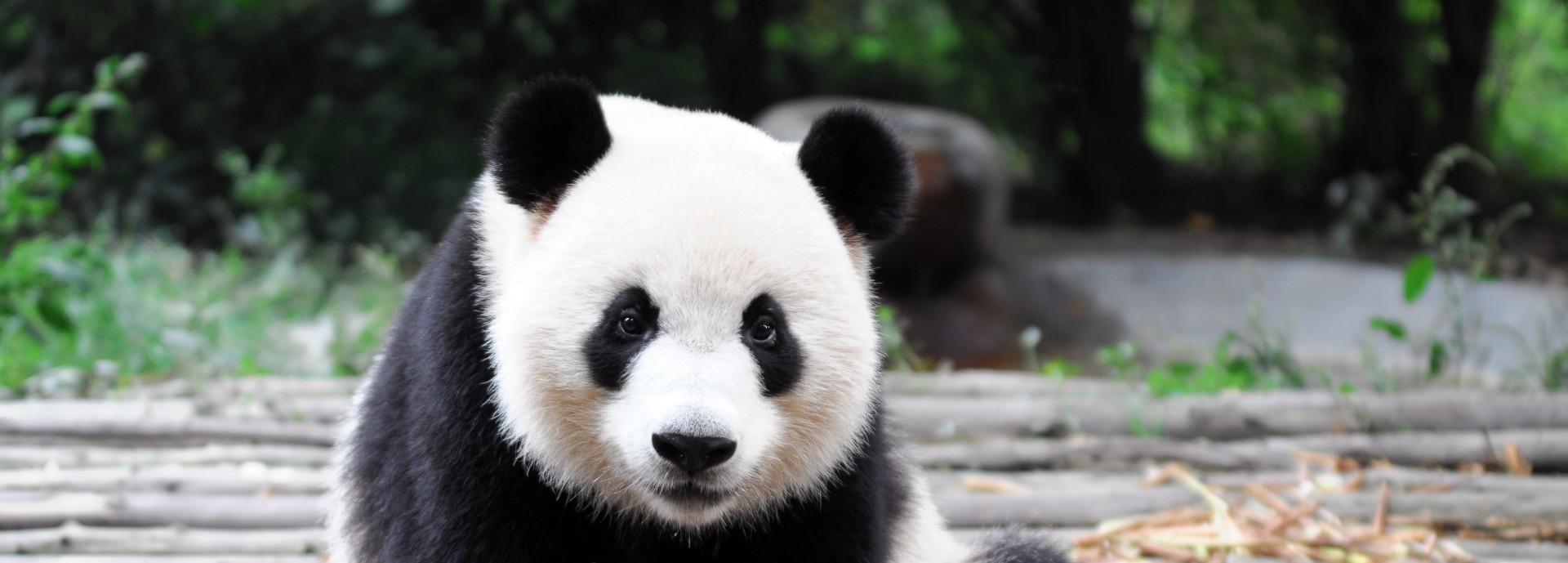Giant pandas living in zoos outside their native latitude range may not have optimal welfare if their body clocks are out of sync, new research by the University of Stirling has found.
Researchers who studied the vulnerable animals at six zoos over the course of twelve months said that much like how humans in Scotland experience seasonal affective disorder (SAD) in the winter, pandas, and captive animals in general, may struggle to fully adapt to environments which they have not evolved for.
All animals have a circadian rhythm regulated by cues from their natural environment, such as temperature, light cycles, and seasonal food. If these cues are quite different to the ones from the latitudes which they have evolved for, it disrupts their bodies and behaviour.
The research found giant pandas housed in zoos outside the latitude of their normal range are less active, with potential consequences for their welfare.
The study also showed pandas’ abnormal and sexual behaviours fluctuated at similar points, possibly suggesting they may be frustrated that they can’t migrate or mate as normal, since migration and mating occur in the same season, spring.

Zoos exist to conserve animals and conduct breeding programmes for endangered species, so our approach may also help them to understand behaviour and the best timing for breeding.
Kristine Gandia of the University of Stirling’s Faculty of Natural Sciences, who is lead author of the study, said: “We found that housing giant pandas in zoos outside of their natural latitudinal range, where environmental cues like light have different cycles to those which they have evolved for, has an effect on rhythms of behaviour throughout the day and across the year.
“Animals synchronise their internal clocks to external cues like light and temperature so that they can display adaptive rhythms of behaviour like sleeping or eating at the right times of day or mating at the best time of year.
“When internal clocks are not synchronised with external cues like light and temperature, animals experience adverse effects. In humans, this can range from jet lag to metabolic issues and seasonal affective disorder.
“We found that giant pandas housed in zoos at higher latitudes than their natural range will show lower levels of activity. We also found sexual-related behaviours and abnormal and repetitive behaviours have similar rhythms throughout the year, implying that giant pandas may display abnormal and repetitive behaviours when they are unable to express sexual-related behaviours, replacing one behaviour for the other.”
Webcam monitoring
Kristine led a team of 13 observers from the University of Stirling who used webcams to monitor 11 giant pandas at six zoos both inside and outside pandas’ natural latitudinal range, noting general activity, sexual behaviour, and abnormal behaviour.
Kristine observed the animals between midnight and 6am at regular intervals throughout the year, from December 2020 until November 2021, which is a more immersive approach than most animal welfare assessments which often take place at specific time points.
She said: “Conducting these observations overnight at the height of the Covid pandemic took its toll on me, which is somewhat ironic because the research is about the importance of maintaining healthy circadian rhythms, but I wanted to demonstrate how crucial it is to assess animal welfare throughout the day and night, and across the seasons.
“This approach can be applied by zoos to determine how environmental factors may be affecting their animals to address questions at the forefront of captive animal welfare on whether species should be housed outside of their natural climatic and latitudinal conditions.
“Zoos exist to conserve animals and conduct breeding programmes for endangered species, so our approach may also help them to understand behaviour and the best timing for breeding.
“To expand on this research, we would want to incorporate cycles of physiological indicators. Importantly, we would want to assess sexual hormones to understand the effects the environment may have. This could help us further understand how to promote successful reproduction for a vulnerable species which is notoriously difficult to breed.”
The study ‘Latitudinal and zoo specific zeitgebers influence circadian and circannual rhythmicity of behaviour in captive giant pandas’ was published by prestigious journal Frontiers in Psychology.

